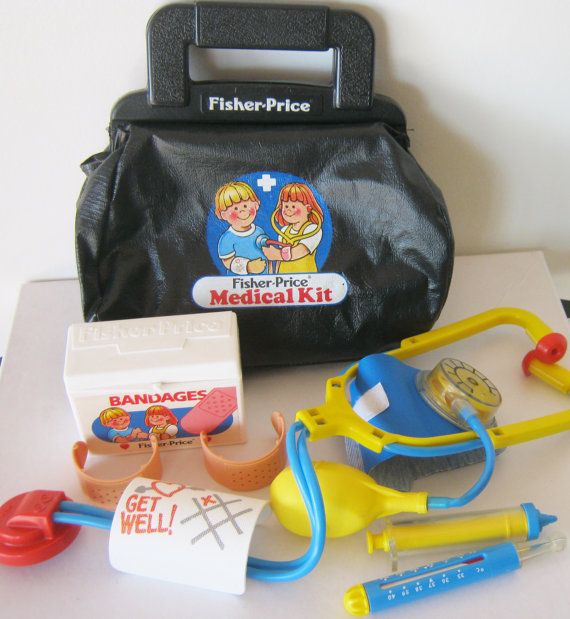- Joined
- Apr 21, 2016
- Messages
- 100
- Reaction score
- 90
- Points
- 4,631
I really want one of those old-school doctor bags. They just look really cool. Can someone tell me if they would be possibly practical, useful or silly?
I really want one of those old-school doctor bags. They just look really cool. Can someone tell me if they would be possibly practical, useful or silly?

I was just gonna say my mom uses a doctor bag so it's not that weird... but she's also a child neurologist... it all makes sense now!!!Don't be that person... Unless you're a neurologist and need to carry around like a dozen tools, there's no reason you can't carry what you need in your coat pockets.
Neurologists can be picked out exclusively by their doctor bags or utility belts.I was just gonna say my mom uses a doctor bag so it's not that weird... but she's also a child neurologist... it all makes sense now!!!
Don't be "that guy".I really want one of those old-school doctor bags. They just look really cool. Can someone tell me if they would be possibly practical, useful or silly?
I wanted to buy a stethoscope lolDon't be "that guy".
When you sit in a lecture hall for the majority of your first two years, it's silly. I have a case that I keep my stethoscope, pen light, reflex hammer and Narcan in that all fits nicely in my commuter bag. I think Promethean's approach with gloves, sutures is overkill. You never need those enough that you can't walk the 30 feet to get them, nor keep them continuously on your person.

I really want one of those old-school doctor bags. They just look really cool. Can someone tell me if they would be possibly practical, useful or silly?
I completely forgot I had one of these as a kid until I saw this picture and was flooded with nostalgia! My PS is practically writing itself now.Absolutely you should. Carrying this around with you in the hospital is an excellent conversation starter:

A bag would be very inconvenient--aside from looking very out of place, think about how you're going to round/take notes if you have to carry a bag in one hand. And what do you do when you need to use the bathroom? At least women's purses can be slung over the shoulder.
Ah. Here, maybe is the disconnect. My bag of tricks is a range bag, with a shoulder strap. Think a very small messenger bag. A handbag would get to be a pain, quickly.
Im curious what makes neurologists the exception for looking foolish with these bags? What are all these tools they carry around?
I really want one of those old-school doctor bags. They just look really cool. Can someone tell me if they would be possibly practical, useful or silly?
Im curious what makes neurologists the exception for looking foolish with these bags? What are all these tools they carry around?
You're allowed to just carry narcan?When you sit in a lecture hall for the majority of your first two years, it's silly. I have a case that I keep my stethoscope, pen light, reflex hammer and Narcan in that all fits nicely in my commuter bag. I think Promethean's approach with gloves, sutures is overkill. You never need those enough that you can't walk the 30 feet to get them, nor keep them continuously on your person.
Massachusetts passed a law in 2016. Our school had a voluntary training program that allows us to carry. Plus it's available for purchase without a prescription at most pharmacies including chains like Walgreens.You're allowed to just carry narcan?
That sounds very thoughtful of you to have all this, but again, you seem to be the exception to the rule. I asked 10 friends at 10 other med schools if they ever had a clinical site with the lack of resources that would warrant the materials you describes and they were all baffled at it. I'm not criticizing your preparation, but its certainly not the MO for the majority of us.It depends on where you are training and what kinds of supplies are available to you.
You have to understand that I've worked as a home care nurse. And on a 200 acre campus where I was going from building to building. At at hospitals where a lot of things that you might consider to be standard were, in fact, not present within 300 feet... let alone 30.
I shelled out $15 for that pulse oximeter because I needed one for a patient who was cyanotic... and one was NOT available on the nursing unit at all. There was one, nonfunctional unit. I was sent to borrow one from a respiratory therapist... who followed me back to my patient's bedside and ripped the equipment away to return to doing her scheduled treatments the moment that I obtained a reading (my patient's sats were in the toilet, btw.) And since that was her own personal equipment that she'd bought with her own money, I can't especially freak out at her for not wanting to let me, as a medical student, tell her how to deploy her resources. I hope that no one else runs into that situation, and that everyone has hospital supplied pulse oximeters. But I'm for danged sure not going to be without one again.
If you are training some place where you are well supplied and you don't have to sign out suture removal kits and sterile gloves, and where there is a gift shop where you could buy batteries and ibuprofen for your own use, then no, definitely don't port those things around with you. But if there are things you need and can't easily lay hands upon, it isn't foolish to have a little kit handy.
As for having these things in the first two years... that is when you have a whole backpack or messenger back full of useful gear. I'm strictly talking about the (again, very light, compact, and well packed) bag of tricks that I use because I hate having my pockets stuffed full. I don't carry a single thing more than I could fit in my two white coat pockets. I just like it all to be sorted and tidy.
This is becoming more common, where it is available otc.Massachusetts passed a law in 2016. Our school had a voluntary training program that allows us to carry. Plus it's available for purchase without a prescription at most pharmacies including chains like Walgreens.
This is becoming more common, where it is available otc.
My state has a private program that paid the state enough money to equip all state troopers with their own narcan.
I hope they change the laws here so I can buy one for my own emergency kit. The area I work is notorious for ODs, it would be a good thing to have if it means maybe saving a life.
Thanks for the advice!So, narcan is ideal, but if you are ever faced with the situation, you can do as much good by carrying one of these: CPR Masks & Face Shields - Red Cross Store
If you can provide rescue breaths while protecting yourself from disease transmission, you can provide oxygenation until narcan arrives via EMT or other emergency responder. Though, in the era of carfentanil and the concern for potentially fatal intoxications via even a small exposure, I can see why this approach might be deemed too risky to attempt these days.
